When you think of blockbuster video games, titles like Call of Duty or Grand Theft Auto might come to mind—games filled with action, drama, and adventure. However, one of the most successful franchises in the gaming world revolves around something far more tranquil: farming. So, unlike many video games that emphasize fast-paced action, Farming Simulator provides a calming and meditative experience with a focus on detailed realism. What began as a niche game designed for those with an interest in farming has grown into a multi-platform success, attracting a diverse and dedicated community of players across the globe. With over 30 million units sold since the first iteration of Farming Simulator was released in 2008, it is fair to say that farming has long outgrown its niche existence, thanks to Swiss video game developer Giants Software.
Founded in 2004 by Christian Ammann and Stefan Geiger in Zurich, Switzerland, Giants Software began as a small, independent studio with a clear vision: to create highly detailed and realistic simulation games that allow players to immerse themselves in complex, real-world activities. At the time of founding, the gaming industry was largely dominated by fast-paced action titles and fantasy-driven adventures so focusing on a highly regarded specialization was the arguably better choice. Simulations with their attention to detail and realism offered a unique gameplay experience and allowed Giants Software to prioritize games that were both entertaining and educational. In 2008, Giants Software released the first installment of what would become their flagship series, Farming Simulator. Not only was this their first major release but also the title that set the course and focus on creating detailed and realistic simulation games.
The idea behind Farming Simulator was simple yet innovative: create a game that allows players to experience the daily life of a modern farmer, featuring real-world farming equipment, accurate crop cycles, and realistic economic management, all wrapped in a user-friendly interface. Initially seen as a niche product for primarily appealing to those with an interest in agriculture, the game’s unique blend of relaxation and challenge quickly found a broader audience and gained a very positive reception. Players were drawn to the detailed, methodical gameplay that allowed them to build and manage their own farms at their own pace, winding down after their daytime job was over. The success of this first title surprised even its creators and established Farming Simulator as the centerpiece of Giants Software’s portfolio.
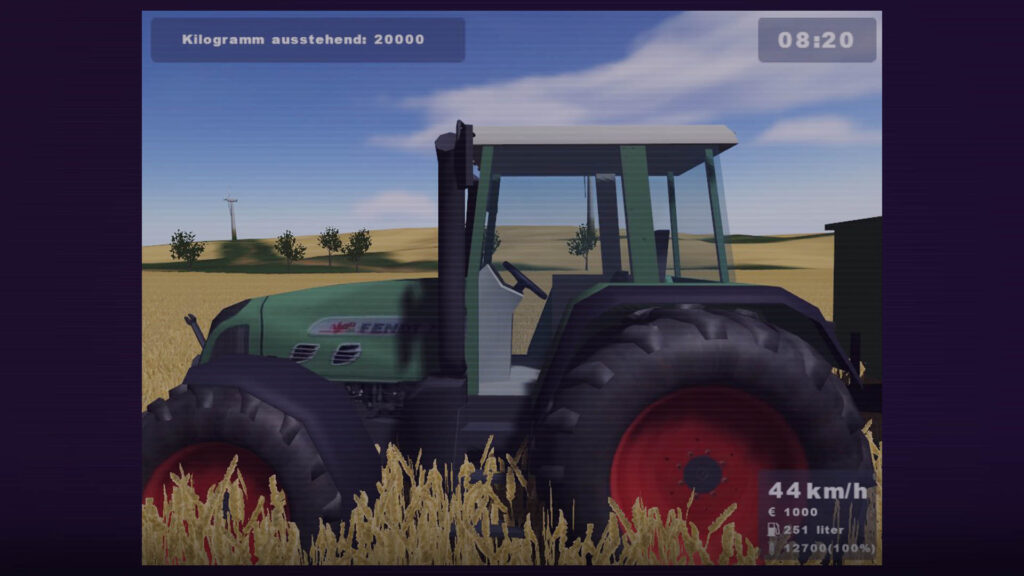
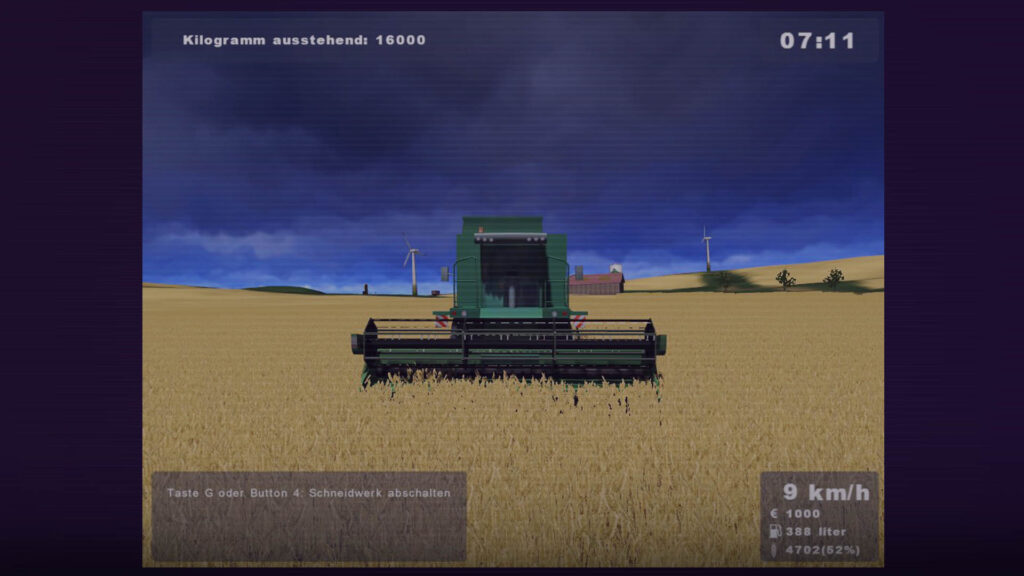
Farming Simulator gained traction and Giants Software began to release new iterations of the game on a regular basis, each bringing substantial improvements and new features. If we’re moving through the years, it’s easy to see why the first Farming Simulator looks rather basic compared to Farming Simulator 25, which is going to be released on November 21 2024. The 2009 version introduced new machinery and expanded crop types, allowing for more complex farming operations. Graphics saw a modest improvement, and the game started to appeal to a wider audience. Possibly one of the biggest and most sought after features came with Farming Simulator 2011: it offered a multiplayer mode, enabling friends to work on their farms together and the added social feature opened up room for role playing elements. Whenever player agency is involved, the longevity of a game is extended by no small amount, although the regular iterations of Farming Simulator keep the franchise alive and healthy either way.
In 2013, the Farming Simulator saw major improvements in both gameplay and visual fidelity. More equipment from real-world brands was added, further enhancing the game’s authenticity. This release also brought in modding support, allowing the community to create and share custom content. The modding community is another big part of keeping a franchise running, fueling it with new ideas without any development input. Following iterations of the Farming Simulator included significant graphical upgrades, with a more detailed environment and machinery models. Forestry was introduced as a new farming activity, giving players the ability to harvest timber and manage forests. Farming Simulator 17 added new crops such as sunflowers and soybeans, along with the option to play as a female farmer, reflecting a growing inclusivity in the game.
Farming Simulator 19 was a major leap forward in terms of graphics, featuring a new engine that delivered more realistic lighting, textures, and overall detail. Horses were introduced as a new animal to care for, and the game expanded its economic system with a more complex farm management system. This version also introduced large American-style farms alongside European maps, appealing to a broader global audience. Seasonal cycles, a highly requested feature, were added with the latest game version, adding a new layer of challenge as players now had to adapt their farming strategies to changing weather and seasons. Multiplayer options were further enhanced and new crops, machinery, and farming activities were added.
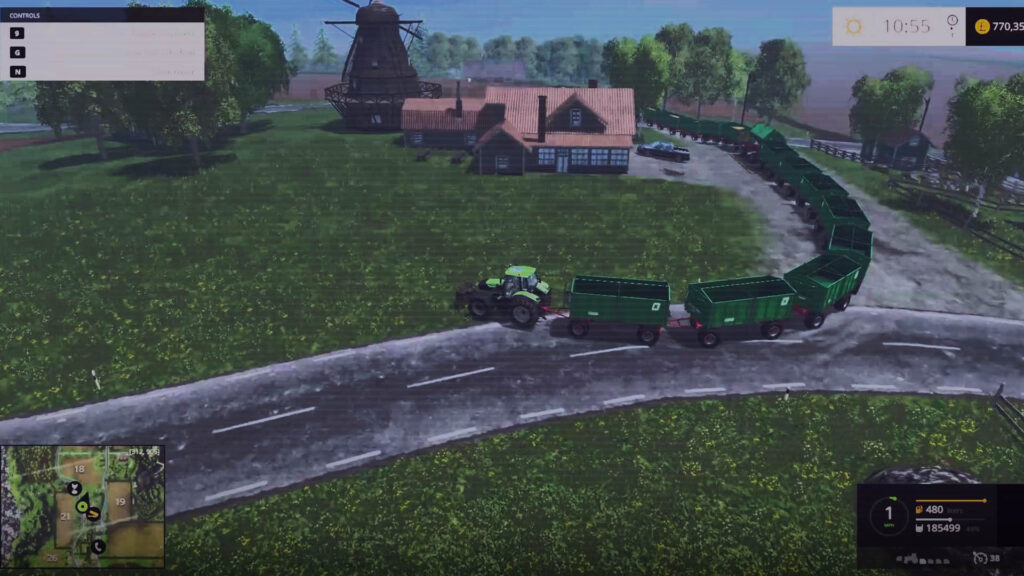
One of the biggest reasons Farming Simulator has remained so popular and successful over the years is its vibrant and dedicated modding community. Giants Software recognized the potential of player-made content early on and made it easy for fans to create and share their own mods. They provided tools and built-in mod support, which allowed players to add everything from new machinery and crops to entire new maps and gameplay mechanics ─ and it shows. The decision to support modding has kept the game fresh and exciting. Over the years, thousands of mods have been created, ranging from small cosmetic tweaks to major gameplay overhauls. Players can easily download and customize their experience, whether they want new tractors, different crops, or entirely different farm setups.
Modding has become a core part of the Farming Simulator experience. Giants Software regularly hosts modding contests and even rewards the best community creations. Some of the most popular mods have even been officially added to the game, blurring the line between what’s fan-made and what’s developed by Giants themselves. Thanks to this thriving modding scene, Farming Simulator has stayed relevant and engaging long after its initial release. The constant flow of new content ensures that every player can tailor the game to their preferences and feels involved with their favorite hobby.
Farming Simulator has had an unexpectedly wide-reaching cultural impact. For many real-world farmers, the game isn’t just entertainment because it reflects their daily lives. The game’s realistic depiction of farming tasks, from plowing fields to managing livestock, has struck a chord with those who work in agriculture and beyond, going so far that some farmers even use the game to experiment with different strategies or test out machinery, making it a useful, albeit informal, tool for planning.
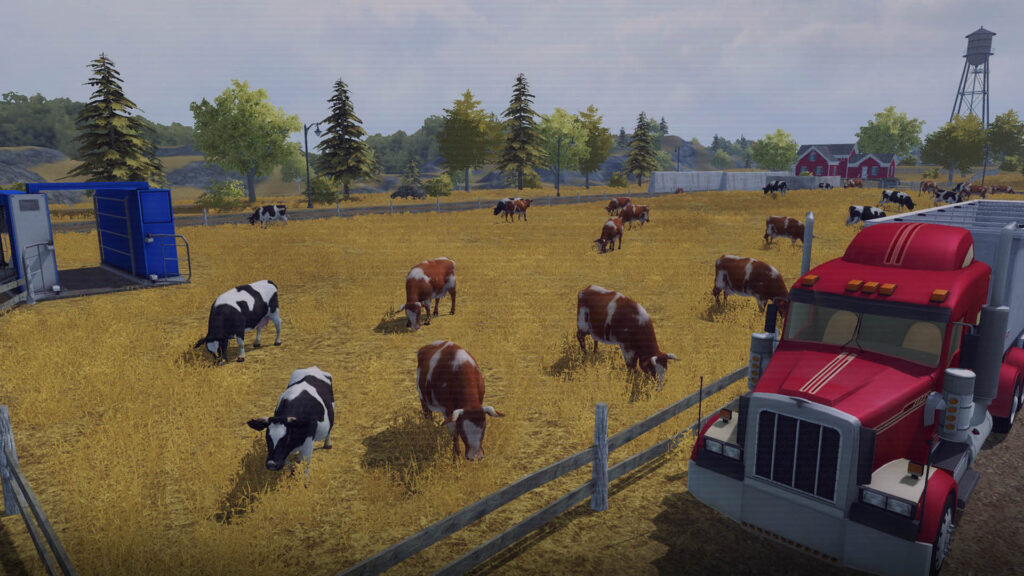
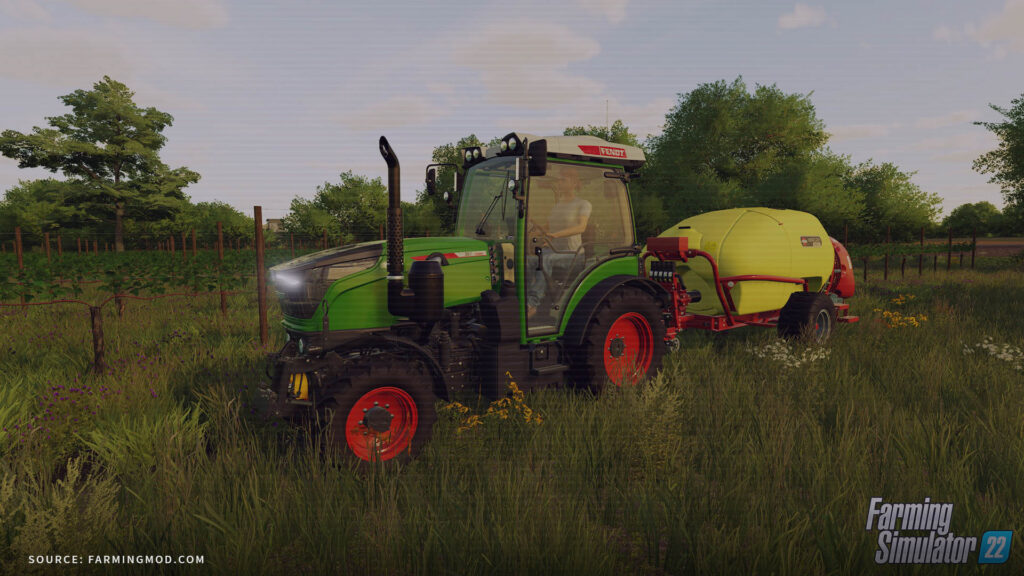
On the education front, Farming Simulator has found its way into classrooms and training programs. Agricultural schools and institutions have started using the game as a way to teach students about modern farming techniques, equipment, and sustainability. Its combination of practical knowledge and interactive gameplay makes it a valuable resource for learning, especially for younger audiences or those new to the field. For example: there have been reports of German vocational schools using Farming Simulator as an educational tool. In a country where agriculture is highly mechanized, the game offers students the chance to explore machinery operation in a virtual environment, gaining practical knowledge that can later be applied in the field.
We already established that Farming Simulator is widely known for its relaxing and methodical gameplay, which made its entry into the competitive world of esports a surprise for many. In 2019, Giants Software officially launched the Farming Simulator League (FSL), marking the game’s transition from a solo or cooperative farming experience to a fully-fledged competitive gaming event. The league transformed typical farming tasks—normally associated with slow-paced, leisurely gameplay—into fast-paced, team-based challenges. Teams of three players go head-to-head in high-stakes matches in farming-based tasks such as harvesting crops, baling hay, and delivering produce. The goal is to accumulate points by completing tasks faster and more efficiently than the opposing team, requiring coordination, strategy, and precision. Unlike traditional eSports, where shooting, strategy, or racing dominate, Farming Simulator introduces a different kind of competitive skill set, where players must not only understand the mechanics of the game but also think strategically about crop management, timing, and machinery use.
Like other eSports leagues, the FSL has embraced online streaming and broadcasting to connect with fans. Matches are live-streamed on platforms like Twitch, YouTube, and even on Giants Software’s own channels, allowing fans to follow their favorite teams, watch live gameplay, and engage with the community. In the end, moving into esports wasn’t something many saw coming, but it’s been surprisingly successful. The FSL brings together professional teams, sponsors, and prize pools, proving that even farming can be competitive when given the right structure. Farming Simulator has also made a noticeable impact on the broader simulation genre. Its success has shown that games focusing on realistic, everyday tasks can find a large and dedicated audience, encouraging other developers to explore similar ideas. In many ways, it has paved the way for other niche simulation games like Euro Truck Simulator and Construction Simulator, proving that there’s a significant market for games that focus on realism over action.
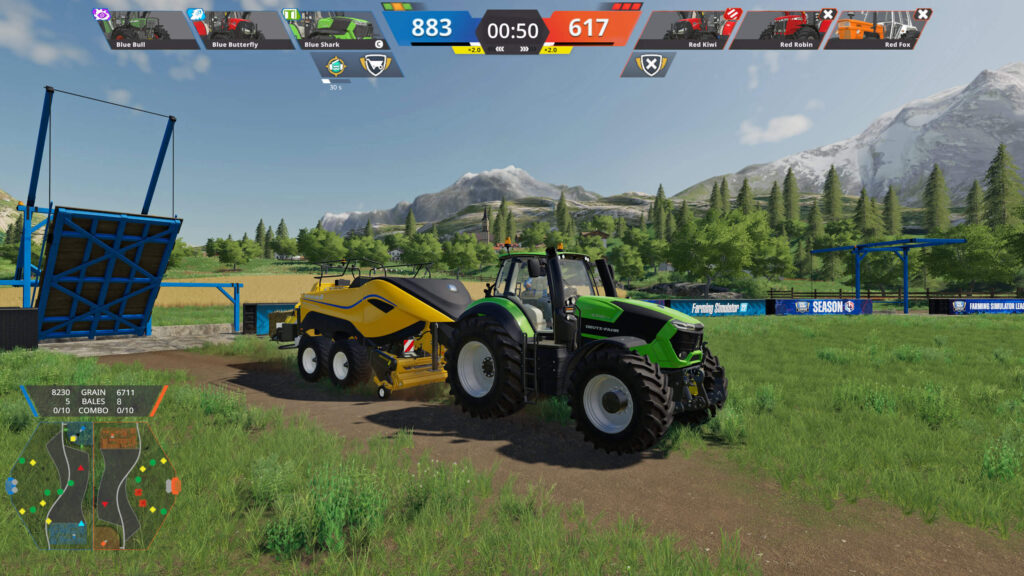
Despite ─ or because of ─ its very specific theme, Farming Simulator has found fans all around the world. Farming, after all, is a universal activity, and the game’s detailed mechanics resonate with people from different cultures and backgrounds. Whether it’s large-scale American farms or smaller European operations, players from different regions see parts of their own agricultural world reflected in the game. The upcoming Farming Simulator 25 introduces rice fields and environments in East Asia which surely is going to resonate with an even bigger audience. Giants Software has done a good job of adapting the game for a global audience, incorporating equipment and farming methods from various countries and offering localized versions. As a result, the game feels familiar and accessible to players worldwide, no matter where they’re farming virtually.
Like any long-running game series, Farming Simulator has faced its share of criticisms over the years. One of the most common complaints from both players and critics is the repetitive nature of the gameplay. Farming tasks—whether it’s plowing, sowing, or harvesting—can feel monotonous after a while, especially for players who are used to more action-packed games. Some feel that the core gameplay loop, while realistic, doesn’t offer enough variety or excitement to keep them engaged long-term. Additionally, another point of criticism has been related to graphical improvements and innovation. While the game has seen steady upgrades with each new installment, some players feel the updates haven’t always been significant enough to justify a new release every few years. They argue that certain mechanics or visuals could be enhanced further, especially given the game’s growing audience and higher expectations.
However, Giant Software has always been proactive and responsive in addressing player feedback. When it comes to the issue of repetitive gameplay, the developers have worked to introduce more variety with each new release. For example, they’ve added new farming activities—such as forestry in Farming Simulator 15 and livestock management and horse care in later versions—to give players more options and keep the gameplay engaging. Giants Software has also expanded the range of machinery and equipment available in the game, partnering with well-known agricultural brands to bring more variety and authenticity to the gameplay. The introduction of seasonal cycles in Farming Simulator 22 was a direct response to players asking for more dynamic farming experiences.
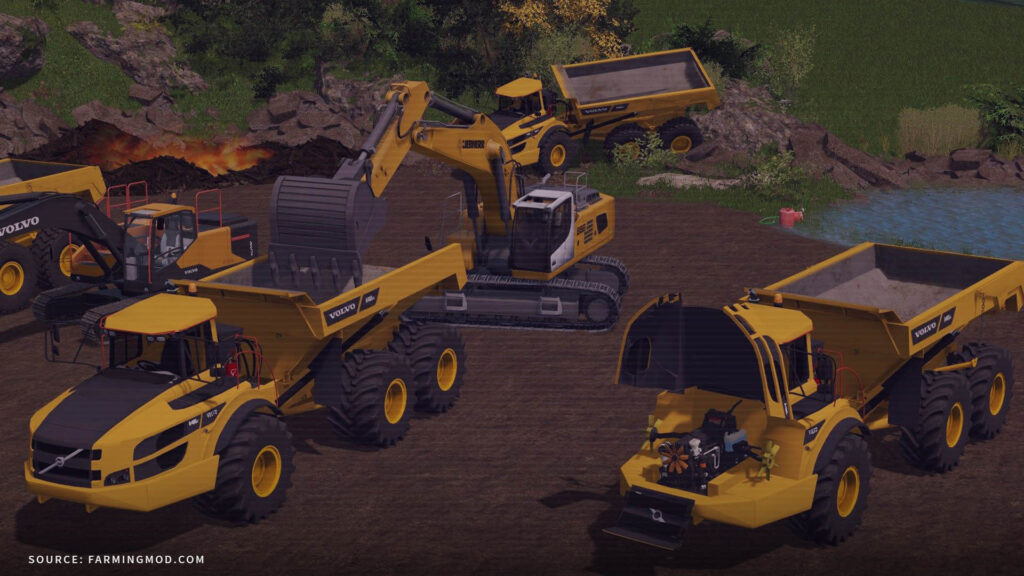
PC players were the first to move their tractors across the fields but that’s been years ago. As Farming Simulator gained popularity, Giants Software saw the opportunity to reach even more players by expanding beyond its PC roots. The game first ventured onto consoles with Farming Simulator 2013, launching on PlayStation 3 and Xbox 360. This move brought the farming experience to console gamers, and subsequent releases, like Farming Simulator 15, made their way to PlayStation 4 and Xbox One. In November 2017, Farming Simulator took another big step by launching on the Nintendo Switch with Farming Simulator: Nintendo Switch Edition. Based on Farming Simulator 17, this version was specially adapted to work on the Switch’s portable and docked modes, making it perfect for players who wanted to farm on the go.
The Switch edition helped introduce the game to a broader, more casual audience. Giants Software continued to support the platform with Farming Simulator 20 in 2019, further expanding its mobile-friendly appeal. The game also made its mark on mobile devices, with versions like Farming Simulator 18 and Farming Simulator 20 available on iOS and Android. By expanding to consoles, the Switch, and mobile devices, Farming Simulator has grown into a global franchise, allowing fans to play no matter their preferred platform.
Farming Simulator has come a long way from its humble beginnings, growing into a global hit that offers players a deep and rewarding farming experience. Giants Software has continually improved and expanded the game with new features, real-world equipment, and platforms, while building a strong, passionate community of players. Whether it’s educating future farmers, creating competitive gaming opportunities, or simply offering a relaxing escape, Farming Simulator has cemented itself as a unique and beloved part of the gaming world.
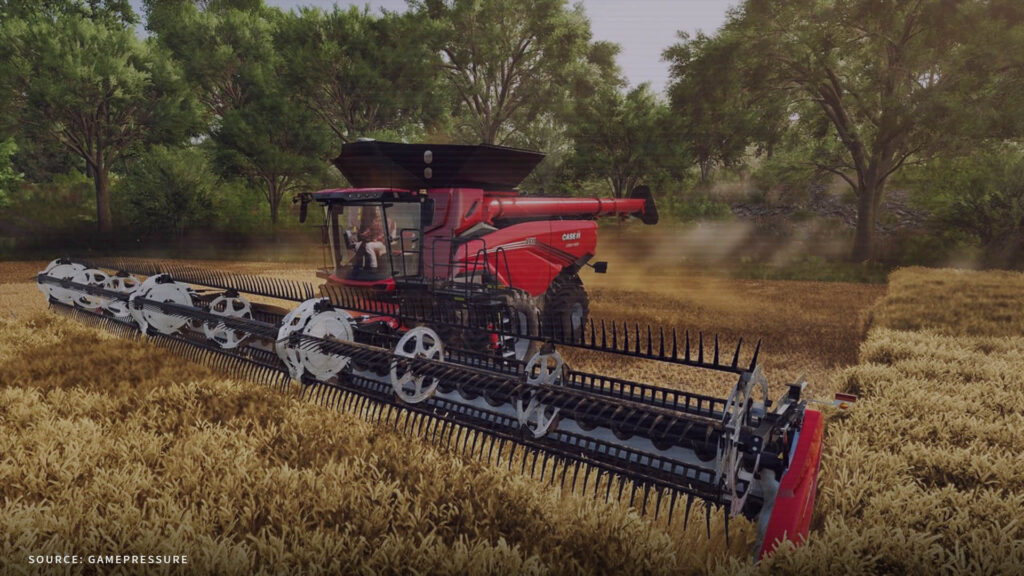
The next chapter in the series, Farming Simulator 25, arrives on November 12, 2024, and brings plenty of new features to get excited about. Players will be able to cultivate rice, spinach, and other new crops while exploring fresh environments in East Asia, North America, and Central Europe. With over 400 machines from 150 top agricultural brands, the game offers even more variety and realism. There’s also a big focus on expanding the gameplay, with new animals, production chains, and construction missions to tackle. On top of that, upgraded graphics and physics will make farming feel more immersive and visually stunning, whether you’re playing solo or teaming up with friends in multiplayer.
Farming Simulator has always been a unique experience, offering players a chance to dive into the world of agriculture in a way that’s both enjoyable and rewarding. With the release of Farming Simulator 25, the series continues to grow, bringing fresh features and richer gameplay to virtual farmers everywhere. The future looks bright for the franchise, and there’s plenty for both long-time fans and newcomers to look forward to.
















